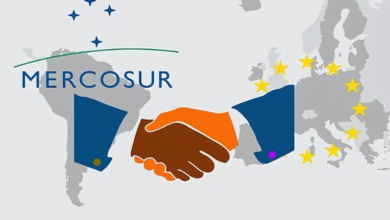Berlin Digital Summit – Ambitious Promises, Measured Progress
On November 18, 2025, the European Digital Sovereignty Summit in Berlin brought together over 900 stakeholders. France and Germany announced ambitious commitments, but questions remain about the practical scope and implementation of these measures.

The European Digital Sovereignty Summit, held on November 18, 2025, in Berlin, marks a milestone in the EU’s technology roadmap. Co-hosted by France and Germany, the event focused on regulation, sovereign digital infrastructure, and the protection of strategic data.
Beyond strong rhetoric and political intentions, some announcements need to be viewed with nuance, particularly regarding their limits and potential risks.
Major Commitments … and Their Fragilities
Among the most symbolic measures is the Franco-German request for a 12-month moratorium on high-risk AI regulations. The aim is to create a regulatory framework more conducive to innovation, but delaying obligations could weaken citizen protections. Likewise, calls to simplify the GDPR may reduce administrative burdens but raise concerns about data safeguards.
On digital markets, France and Germany welcome the European Commission’s inquiry into hyperscale cloud providers. While Europe depends heavily on non-European platforms, supporting European alternatives without compromising efficiency or cost remains a challenge.
Data sovereignty is another focal point: strict standards are proposed to protect sensitive information against extraterritorial legislation. Experts warn that overly stringent rules could slow innovation and interoperability across the EU.
Digital Infrastructure: Promises vs. Reality
Paris and Berlin announced a European “digital commons” consortium with Italy and the Netherlands, aiming to create shared infrastructure. While this could foster more sovereign cloud alternatives, success depends heavily on public financing and sustained European cooperation.
They also pledged to promote open-source tools in public administration, citing LaSuite/OpenDesk as an example. Open-source software can reduce dependency on proprietary systems, but questions remain about technical support, interoperability, and maintenance.
A Franco-German working group was established to define “digital sovereignty indicators” in cloud, AI, and cybersecurity, with results expected at the 2026 Franco-German Council. Its effectiveness will depend on real implementation.
AI: Innovation Leverage Amid Geopolitical Pressures
France and Germany seek to foster cutting-edge AI, combining public-private funding to create a European AI model aligned with EU values.
Chancellor Friedrich Merz stated: “We must not cede the digital field to superpowers,” emphasizing competition from the U.S. and China.
President Emmanuel Macron added that cross-border cooperation is “not only an aspiration but a strategic imperative,” highlighting €12 billion in announced investments between French and German companies. Analysts caution, however, that without a coherent European industrial policy, these pledges may remain symbolic.
Sovereignty: At What Cost?
Despite ambitious goals, skepticism remains. Some observers doubt that announced investments suffice to catch up with global cloud giants. Private AI and data center funding may widen gaps between large groups and startups.
Other critiques focus on regulatory risks: simplifying rules to stimulate innovation might compromise data protection. True European digital sovereignty requires political coordination and sustainable funding; without these, the summit could remain declaratory.
Toward a more autonomous European digital landscape…
The Berlin summit marks progress toward a more autonomous European digital landscape, but substantial work remains to transform ambitions into concrete infrastructure and European technologies.






